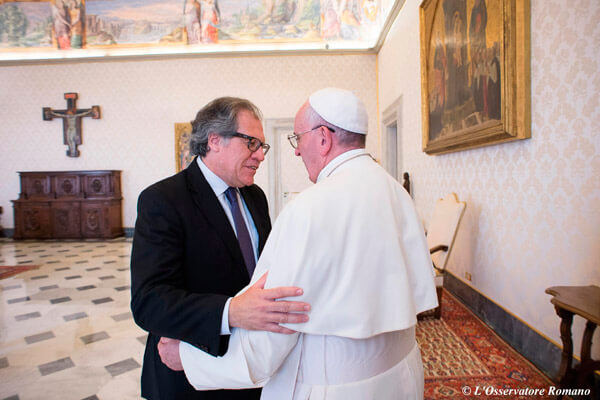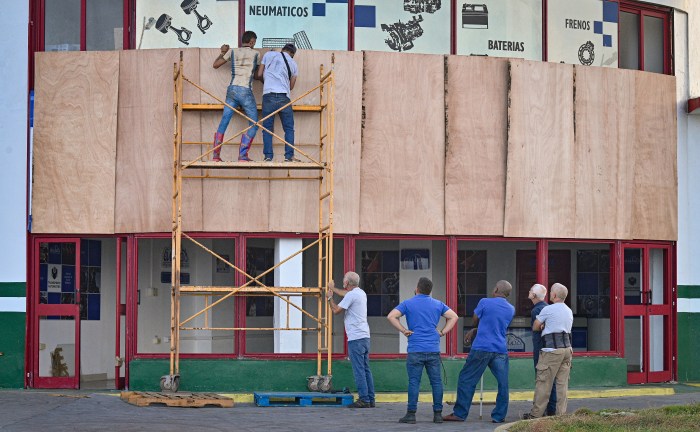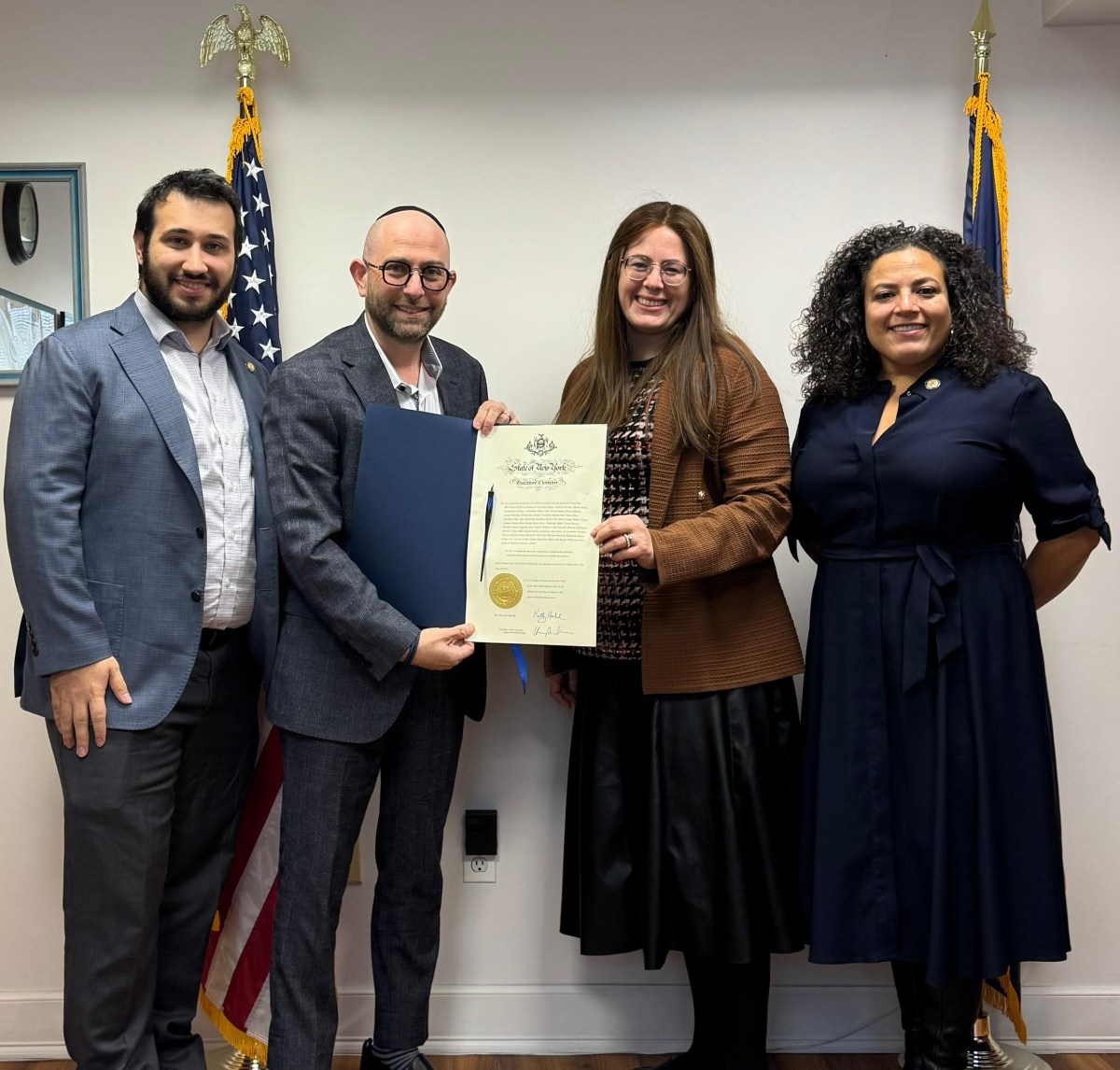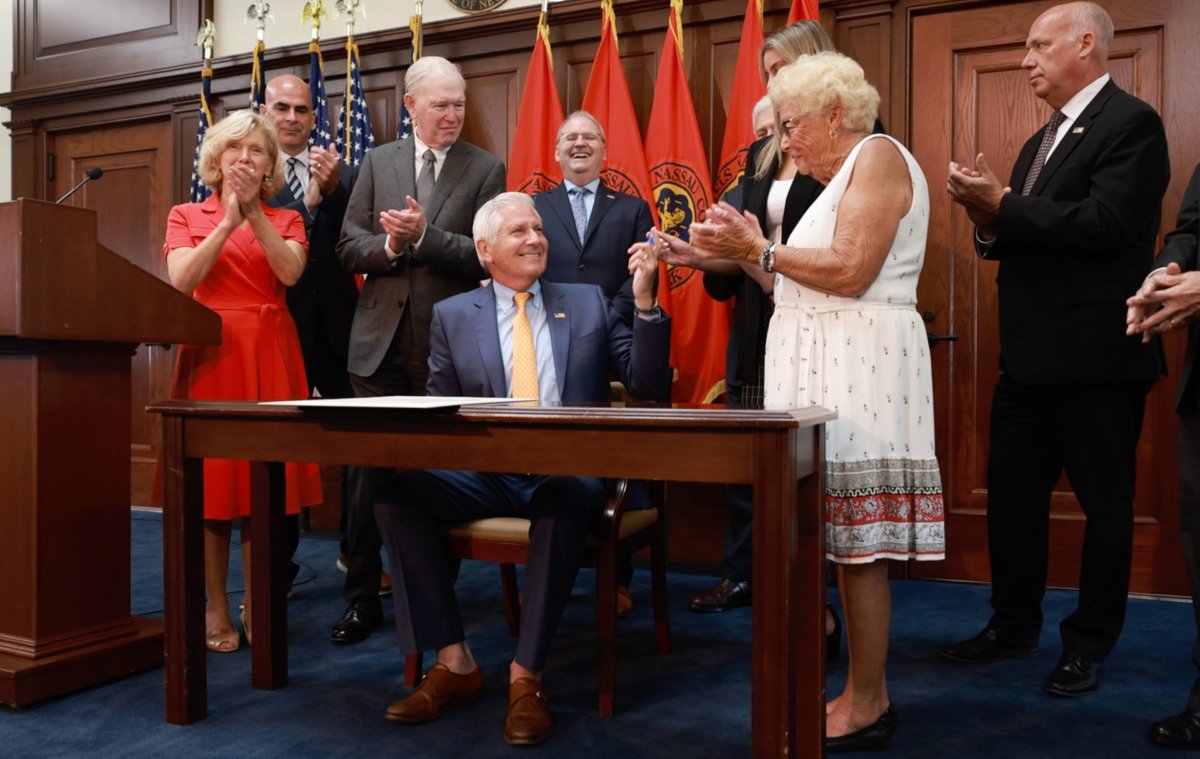The Secretary General of the Organization of American States (OAS), Luis Almagro, has welcomed the agreement reached by Mexican and Central America authorities allowing the passage of thousands of Cuban migrants to the United States.
“The humanitarian situation of the Cuban migrants required a quick and integral solution, and this agreement facilitates that,” said Almagro on Tuesday.
“We have to congratulate the diplomatic efforts made by the countries involved,” he added. “They have taken a giant step forward.”
Almagro, who had followed the process closely, also recognized the role played by Pope Francis in urging a solution to the crisis.
He stressed that “migrants have the same rights as other citizens,” adding that those rights are “valid regardless of the administrative situation of the migrants.”
The secretary general offered the support of the OAS to protect migration in the hemisphere against human trafficking, and to develop the agreement reached on Monday in Guatemala by Mexico and six Central American countries.
Almagro also reiterated the need to protect migrants throughout their route, according to the OAS.
Meantime, as Cubans continue to arrive in South Florida in droves, a deal that allows thousands stranded in Costa Rica to complete their journey to the U.S. has relatives scrambling to come up with more money to help, according to Local 10 TV News in Miami.
Under the U.S.’ “wet foot, dry foot” policy, Cubans reaching U.S. shores are allowed to stay in the country but those caught at sea are repatriated.
The new deal will allow Cuban migrants to travel to Mexico and ride a bus to the U.S., Local 10 said.
“We are very, very happy with the news,” said Cuban migrant Reynier Garces in Spanish.
He was among the now estimated 8,000 who were stuck after Nicaragua closed its border on Nov. 13.
Some 250 Cubans were expected to fly from San Jose, Costa Rica to San Salvador, Salvador, before the year ends, according to Local 10.
The television station said they will ride a bus from Guatemala through Mexico, “which has been aggressively trying to stop Central Americans on their way to the US.”
Costa Rica, Mexico, Honduras, Panama, El Salvador and Guatemala were among the signatory nations in the new deal, Local 10 said.
























